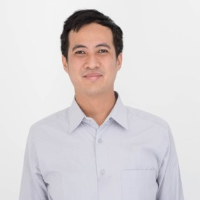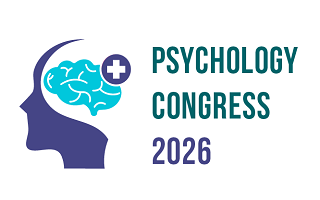3rd International Congress on
Psychology & Behavioral Sciences
March 26-27, 2026 | Osaka, Japan

Address: 1 Chome-9-15 Shinkitano, Yodogawa Ward, Osaka, 532-0025, Japan.
Psychology Congress 2026

University of Copenhagen, Denmark
Abstract:
People living with HIV (PLWH) often face psychological distress, including anxiety, depression, and internalized stigma, which can undermine adherence and quality of life. While clinical interventions primarily address biomedical needs, peer-led support groups may provide important psychosocial benefits. This study explored how such groups operate as informal psychological care in two culturally distinct settings. We conducted 40 semi-structured interviews with PLWH (20 in Indonesia, 20 in Denmark) who had participated in peer-led groups for at least six months. Participants were recruited through HIV clinics and community organizations to reflect diversity in gender, age, and treatment history. Data were analyzed thematically within a clinical health psychology framework, focusing on coping, emotional regulation, and self-management. Participants described peer groups as safe spaces that reduced emotional burden by normalizing feelings of fear, shame, and anger. Group dialogue promoted cognitive reframing, enabling a shift from self-blame to resilience and acceptance. Peer exchange also fostered self-efficacy, as participants gained confidence in managing side effects, communicating with healthcare providers, and maintaining adherence. Cultural variations were evident: Indonesian participants emphasized collective strength and spiritual coping, while Danish participants highlighted autonomy and trust. Despite these differences, peer support consistently enhanced psychological adjustment and sustained care engagement. Peer-led groups represent cost-effective, scalable complements to formal mental health services. Integrating them into HIV care could reduce stigma, strengthen resilience, and improve quality of life for PLWH across diverse contexts.
Biography:
Taufik Akbar Rizqi Yunanto is a PhD Candidate in Psychology at the University of Copenhagen, Denmark. His research focuses on health psychology and clinical care, exploring how peer-led support groups reduce stigma, foster resilience, and improve quality of life among people living with HIV in Indonesia and Denmark. Using qualitative and cross-cultural approaches, his work highlights the psychological and societal dimensions of HIV care. Beyond academia, he has contributed to public health initiatives in Indonesia, including laboratory systems strengthening and HIV advocacy. He is committed to advancing culturally responsive psychosocial care in global health contexts.
